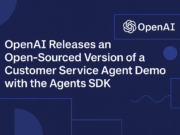Imagine this: You’re walking down the street, minding your own business, when suddenly, police officers approach you. “You’re under arrest,” they say, “for a crime you haven’t committed yet.” It sounds like something straight out of a sci-fi movie, right? Well, buckle up, because the future is here, and it’s closer to the dystopian world of Minority Report than you might think.
The Rise of AI in Law Enforcement
Artificial Intelligence is no longer just about predicting what movie you might want to watch next or helping you navigate traffic. Today, AI is being used to predict criminal behavior before it happens. Yes, you read that correctly. Law enforcement agencies around the world are deploying AI systems designed to forecast crimes, identify potential suspects, and even suggest who might be at risk of becoming a victim.
These systems analyze massive amounts of data—social media posts, online activity, criminal records, and even data from your smartphone. They look for patterns, behaviors, and connections that might indicate someone is on the verge of committing a crime. It’s a powerful tool, and in many ways, it sounds like a game-changer for public safety. But here’s where things get a little… unsettling.
The Ethical Minefield of Preemptive Policing
The idea of stopping crime before it happens is undeniably appealing. Who wouldn’t want to live in a world where danger is neutralized before it even arises? However, the reality is far more complicated and, frankly, disturbing.
First, let’s talk about bias. AI systems are only as good as the data they’re trained on, and if that data is biased, the predictions will be too. Many AI crime prediction tools have been criticized for disproportionately targeting minority communities. These systems can reinforce existing prejudices, leading to over-policing and unjust scrutiny of already marginalized groups. It’s not just a technological issue; it’s a human rights one.
Then there’s the question of privacy. To make accurate predictions, AI systems need data—a lot of it. But where do we draw the line between keeping society safe and invading personal privacy? Are we comfortable with the idea that our every move, every post, and every interaction could be scrutinized and used against us, not because of what we’ve done, but because of what we might do in the future?
And what about the potential for false positives? Imagine being labeled a criminal simply because an algorithm flagged you as a “potential threat.” You haven’t done anything wrong, but now you’re on a watchlist, your life under constant surveillance, your freedoms slowly eroding. It’s a chilling thought, and it brings us back to the central question: Are we okay with sacrificing our civil liberties for the promise of safety?
The Slippery Slope
As AI continues to evolve, so too does its potential to reshape society in ways we can’t fully predict or control. The prospect of a world where AI can predict crime might sound like the ultimate victory for law and order, but it also opens the door to a host of ethical and moral dilemmas. How much power are we willing to give up in the name of security? And who gets to decide what’s more important—our freedom or our safety?
We’re standing at the edge of a slippery slope, one that could lead to a world where your future is no longer in your hands, but in the hands of an algorithm. It’s a future where the lines between safety and surveillance, justice and control, become dangerously blurred.
Are We Ready for the Future?
As we continue to embrace AI in all aspects of our lives, we must also be prepared to ask the hard questions. Are we willing to live in a world where our actions are predicted and judged before they even happen? Is it worth the risk of losing our privacy, our freedom, and our humanity?
The idea of preemptive law enforcement may seem like a far-off possibility, but the truth is, it’s already here. The choices we make now will determine whether we create a safer society or a dystopian one. So, are we living in a Minority Report world? Maybe not yet. But if we’re not careful, we might be closer than we think.
It’s time to decide: Do we want to be protected by AI, or do we want to be controlled by it?
Join the Conversation
What do you think? Is AI the future of crime prevention, or is it a step too far? Share your thoughts, and let’s spark a conversation about the kind of world we want to live in. The future is in our hands—let’s make sure we get it right.


















![Diablo 4 Mod Apk Newest Model [Unlimited Excitement]](https://digibytetoday.com/wp-content/uploads/2025/06/1750344127_1-final-180x135.jpg)















